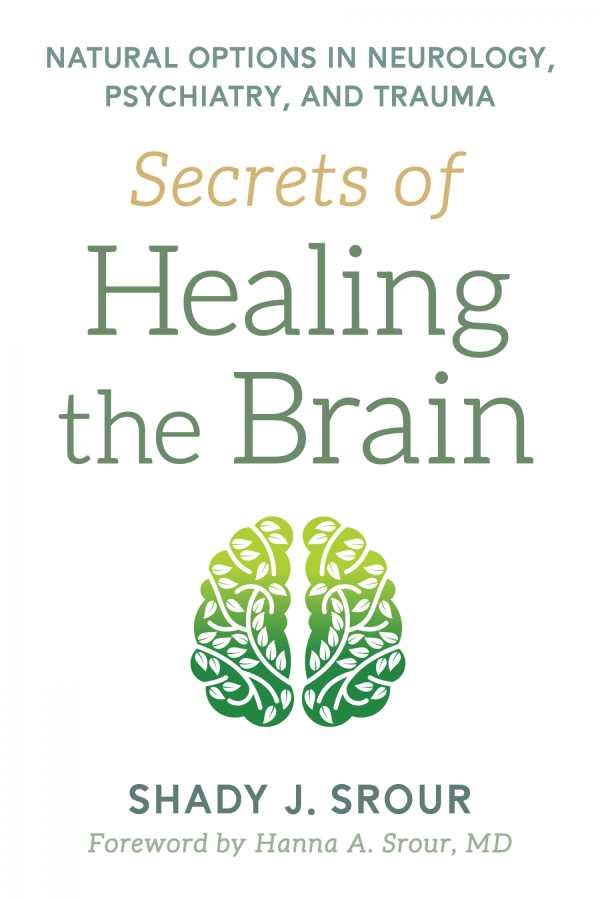Secrets of Healing the Brain
Natural Options in Neurology, Psychiatry, and Trauma
The medical guide Secrets of Healing the Brain explores natural neurological therapies with focused compassion.
Shady J. Srour’s Secrets of Healing the Brain is a well-reasoned guide to the use of herbal medicine and holistic therapies in treating neurological diseases and psychiatric disorders.
The book is an expansion of Srour’s Dominion Herbal College thesis, with a primary focus on utilizing alternative medical methods for the treatment of neurological and psychological conditions. It asserts that though pharmaceutical medicines abound, such prescriptions often only manage the immediate symptoms of diseases and can have significant side effects with prolonged usage. Preliminary alternative therapies are detailed for a range of conditions, including autism, addiction, insomnia, and post-traumatic stress disorder.
The book’s introductory chapter lists various herbs and plants alongside their suggested uses for conditions including schizophrenia, depression, and neurodegenerative diseases like Alzheimer’s and Parkinson’s. Garlic, it asserts, can improve the body’s vascular function, with healthy circulation linked directly to brain health. And cinnamon may prevent further deterioration of dopaminergic cells for those with Parkinson’s, while cannabidiol, derived from hemp or marijuana, may benefit patients with anxiety and psychosis. Ginger is neuroprotective and anti-inflammatory, with studies being done to determine its effect on the treatment and prevention of multiple sclerosis, Alzheimer’s, and migraines. Beyond herbal treatment, the book also incorporates recommendations for regular exercise, meditation, yoga, stress management, and fasting.
Secrets of Healing the Brain is not an exhaustive alternative medicine volume, nor is it a trendy, wellness-oriented study. The information provided is introductory yet cohesive, with a fundamental motivation to “maximize healing” and “minimize suffering.” References to traditional Chinese medicine, Ayurvedic, and homeopathic methods are made, along with Srour’s own experiential findings. And beyond individual symptoms, the book explores the concept of “Big Picture Healing,” or addressing the social and environmental causes of disease, with climate change indicted as a factor in increasing global psychological instability.
Still, even as it argues that economic anxieties, poor water quality, pollution, and housing inadequacy contribute to collective stress, mental toxicity, addictive behaviors, and substance abuse, the book recommends approaches that may be out of reach for affected communities. It recommends a diet of organic, plant-based food and filtered water, discourages the use of plastics, and advises avoiding the electromagnetic fields created by cellular phones, Wi-Fi, and microwaves; using landlines and wired internet whenever possible is suggested instead, despite the related difficulties for those living in urban areas or who have limited incomes.
But the book’s somewhat clinical tone is tempered by Srour’s underlying empathy. There are discursions to assert opposition to animal medical testing (the book says that the practice is cruel and that results derived from animal trials aren’t always indicative of actual effects on humans). There are also cautions against relying exclusively on alternative medical methods, with praise directed toward conventional medicine’s “fantastic” potential for diagnostics. The information on vaccine mandates is presented with diplomatic consideration; Srour notes that while vaccines are important for public health, the issue of vaccine resistance has become “politicized.” The book suggests that the safety and side effects of vaccines should be studied further and with impartiality.
Encouraging audiences to consult with their physicians or healthcare providers before following any alternative medical program, the medical guide Secrets of Healing the Brain explores natural neurological therapies with focused compassion.
Reviewed by
Meg Nola
Disclosure: This article is not an endorsement, but a review. The publisher of this book provided free copies of the book and paid a small fee to have their book reviewed by a professional reviewer. Foreword Reviews and Clarion Reviews make no guarantee that the publisher will receive a positive review. Foreword Magazine, Inc. is disclosing this in accordance with the Federal Trade Commission’s 16 CFR, Part 255.

